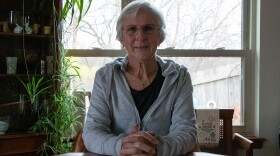A growing number of health care providers are recognizing the importance of incorporating spiritual care in medicine.
As The Huffington Post reports, health care professionals are often trained to disregard spirituality and religion when dealing with patients.
Dr. Christina Puchalski is one of a growing number of medical providers bucking that trend.
Puchalski, founder and director of the GW Institute for Spirituality and Health (GWish) told The Huffington Post that patients, particularly terminal ones, are seeking some kind of meaning to their lives as they face the end. She said how patients reconcile their illnesses should be a part of the “whole person model” that doctors employ.
Another health care provider, Dr. Michael Balboni, a theologian and Harvard University psychiatry instructor has dedicated his career to researching the spiritual dimensions of health care, research that has uncovered the profound impact that religion or spirituality has on patients’ medical decisions, the Huffington Post reports.
According to the Association of American Medical Colleges (AAMC), spirituality is defined as “a recognized factor that contributes to health in many persons. The concept of spirituality is found in all cultures and societies. It is expressed in an individual's search for ultimate meaning through participation in religion and/or belief in God, family, naturalism, rationalism, humanism and the arts. All these factors can influence how patients and health care professionals perceive health and illness and how they interact with one another.”
The AAMC published a report in 1998 called the Medical School Objectives Project, which included learning objectives including students’ abilities to take a patient’s “spiritual history” and their understanding about how to collaborate with clergy and spiritual leaders as part of the patient’s care.
Several years later, the Joint Commission, the accrediting agency of most health care organizations, issued standards requiring that providers “receive training on the value of spiritual assessment.”
On the flip side, religious practices, such as fasting, can, from some doctors’ points of view, interfere with their ability to provide patients with optimal care, and patients’ religious beliefs could, in some cases, lead them to ignore medical recommendations altogether.
At the same time, many health care providers cite a lack of time as one of the main obstacles to incorporating spirituality into their care, so doctors like Puchalski and the University of Chicago’s Dr. John Yoon are seeking ways for medical students and doctors to begin reflecting on their own spirituality to cope with the stress of having too many patients and too little time.
The focus on the spiritual is on the increase, however. Medical schools that incorporate some education on spirituality and health in their curriculum has increased from about 13 percent in 1994 to about 90 percent in 2014.







